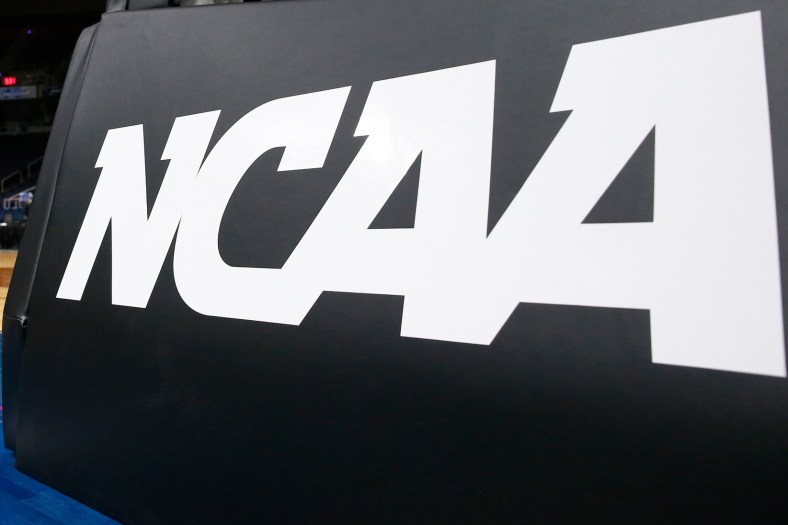
As more states across the United States move forward with bills that will allow student-athletes to receive compensation, the NCAA took a crucial step forward this week to prepare for a new future.
The NCAA announced in a statement on Wednesday that the Board of Governors is supporting rule changes that will enable student-athletes to receive compensation. Student-athletes will be able to receive financial compensation for third-party endorsements, both related and separated from their athletics.
“Throughout our efforts to enhance support for college athletes, the NCAA has relied upon considerable feedback from and the engagement of our members, including numerous student-athletes, from all three divisions,” chair of the board and president of Ohio State Michael V. Drake said, via statement. “Allowing promotions and third-party endorsements is uncharted territory.”
Student-athletes would also be allowed to explore opportunities for compensation on social media, with personal businesses and for personal appearances made that follow the NCAA’s guidelines.
The decision by the NCAA’s highest governing body is a major step forward that would become an unprecedented time in collegiate sports. The board’s decision also states that it wants to see guidelines put in place regarding compensation for future name, image and likeness activities and those new rules are expected to be in place by the 2021-’22 academic year.
Notably, the NCAA’s decision does not allow for image and likeness activities that can be considered pay for play or that feature the use of name or image of the schools.
As part of the NCAA’s ongoing efforts to establish firm guidelines to allow student-athletes to be compensated for their name, image and likeness, it established principles that must be met, which it shared via press release.
- Ensuring student-athletes are treated similarly to nonathlete students unless a compelling reason exists to differentiate.
- Maintaining the priorities of education and the collegiate experience to provide opportunities for student-athlete success.
- Ensuring rules are transparent, focused and enforceable, and facilitating fair and balanced competition.
- Making clear the distinction between collegiate and professional opportunities.
- Making clear that compensation for athletics performance or participation is impermissible.
- Reaffirming that student-athletes are students first and not employees of the university.
- Enhancing principles of diversity, inclusion and gender equity.
- Protecting the recruiting environment and prohibiting inducements to select, remain at, or transfer to a specific institution.
The NCAA’s Board of Governors also called upon Congress to follow on a set of guidelines that would keep from the NCAA being undermined by any future laws, which the NCAA disclosed via press release.
- Ensuring federal preemption over state name, image and likeness laws.
- Establishing a “safe harbor” for the Association to provide protection against lawsuits filed for name, image and likeness rules.
- Safeguarding the nonemployment status of student-athletes.
- Maintaining the distinction between college athletes and professional athletes.
- Upholding the NCAA’s values, including diversity, inclusion and gender equity.
Following the recommendation by the Board of Governors, the measure will now move to the rules-making structure in each of the three NCAA divisions.